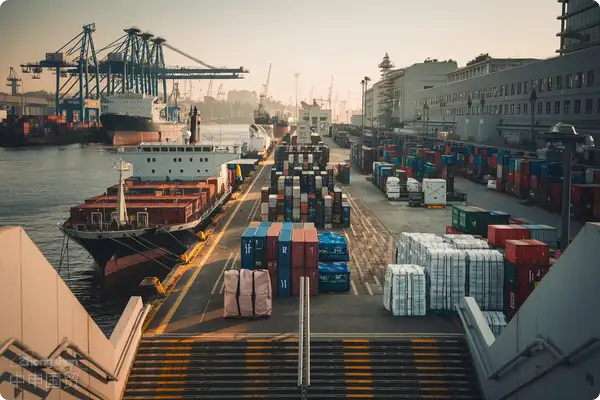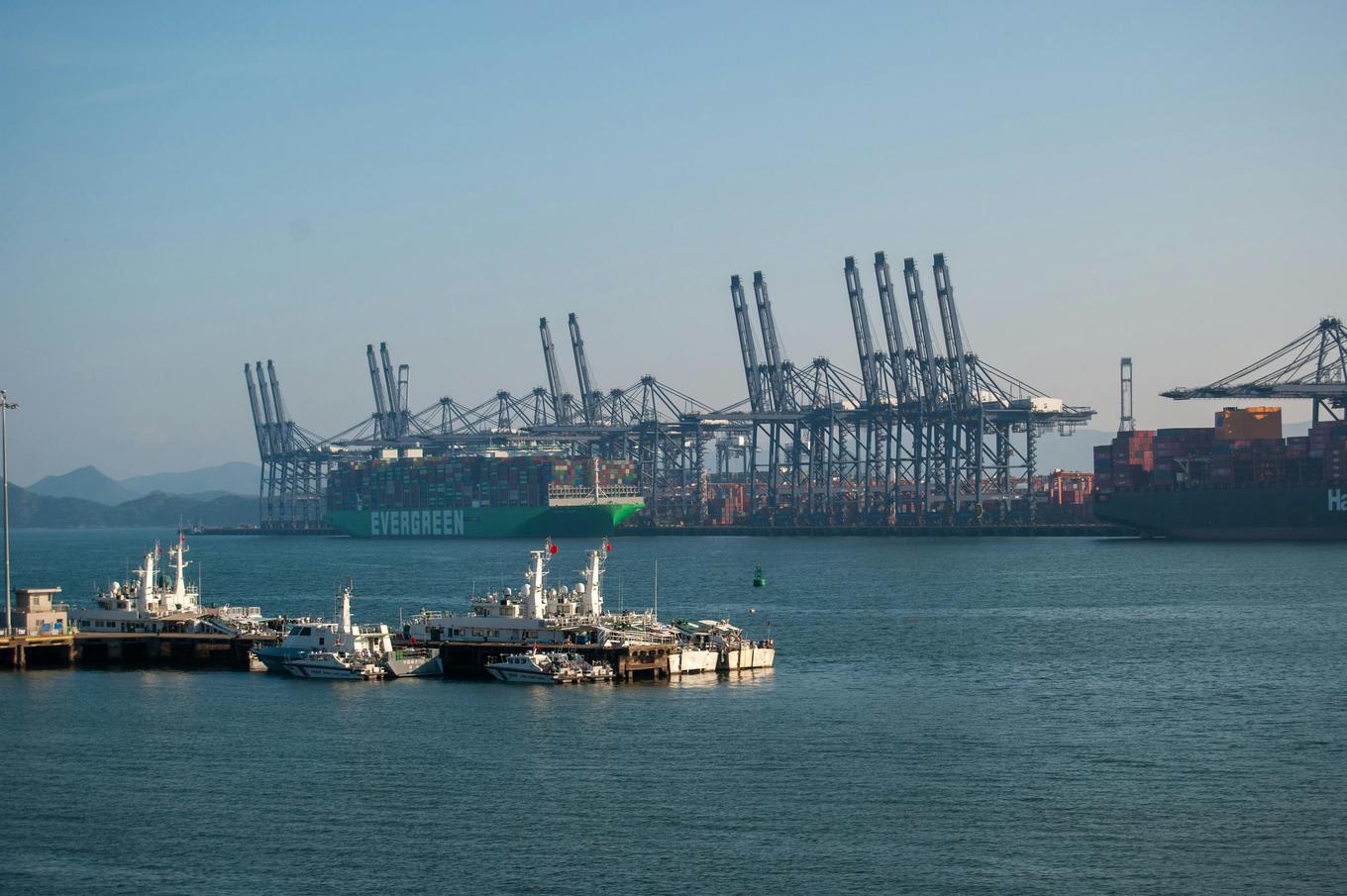- Shanghai Zhongshen International Trade Co., Ltd. - Two decades of trade agency expertise.
- Service Hotline: 139 1787 2118

Introduction: Trade Opportunities for Imported Heating Equipment
Under the grand landscape of global trade, heating equipmentimport and exportTrade holds abundant opportunities. Whether it's the frigid winters in Russia or the demand for heating equipment in specific scenarios in parts of Southeast Asia, these conditions create ample space for trade in this sector. For importing heating equipment, from document processing to logistics arrangements, from...FX Settlement AgencyEvery step is crucial, from verification to certification.
ZhongShen International TradeProfessional capability in documentation processing
Document processing is a fundamental and crucial aspect in the trade of imported heating equipment. ZhongShen International Trade has extensive professional expertise in this field. When importing heating equipment, the first step involves the commercial invoice, which provides detailed information such as the value, specifications, and quantity of the goods. We ensure that the invoice content is accurate and strictly matches the actual goods to avoid any customs clearance delays caused by invoice discrepancies.
The bill of lading is also an extremely important document. When arranging logistics for the import of heating equipment, we will accurately select the appropriate type of bill of lading based on different transportation methods, such asMaritime TransportationBill of lading,Air TransportationBill of lading, etc. For ocean bills of lading, we will closely monitor key elements such as negotiability and ownership of the goods to ensure the rights and interests of all parties are protected during the transportation process.
The packing list is equally indispensable, as it meticulously documents the packaging details of the heating equipment, including the dimensions, weight, and model numbers of the devices contained in each package. We prepare the packing list with great care to ensure that customs, logistics companies, and other relevant parties can clearly understand the packaging specifics of the goods, thereby facilitating smooth loading, unloading, transportation, and customs clearance processes.
The professional approach to logistics arrangements
When importing heating equipment, the rationality of logistics arrangements directly affects the timeliness and cost of the goods. If importing from Southeast Asia, considering the relatively short distance and well-developed water transportation in some regions, we usually prioritize evaluating the feasibility of sea freight. For large and heavy heating equipment, less-than-container-load (LCL) or full-container-load (FCL) shipping may be more suitable options. When selecting a shipping company, we comprehensively consider factors such as schedule stability, service quality, and pricing.
When importing from Russia, due to the vast territory and special winter transportation conditions, rail transport can sometimes serve as a good supplementary option. Rail transport is relatively less affected by severe weather during winter, ensuring a certain level of timeliness for cargo delivery. Additionally, we will carefully plan transportation routes, selecting the optimal railway trunk lines and transfer nodes based on the destination of the equipment, to ensure efficient and timely delivery of goods.
In terms of logistics insurance, we will select the appropriate insurance plan for customers based on the value of the heating equipment and transportation risks. Whether it's Free from Particular Average (FPA), With Particular Average (WPA), or All Risks in marine insurance, we will conduct a thorough analysis according to the actual situation to ensure that customers receive reasonable compensation in case of cargo damage or loss during transportation.
Advantages of VTB Foreign Exchange Settlement in the Russian Market
In the context of heating with Russia,Equipment ImportsDuring trade, the settlement of foreign exchange is crucial. Our company offers the convenience of VTB for foreign exchange settlement in the Russian market. VTB is one of Russia's major banks, and collaborating with it for foreign exchange settlement can significantly enhance efficiency.
Generally speaking, after the transaction of imported heating equipment is completed, the customer pays us, and we conduct the foreign exchange settlement operation through VTB Bank. In this process, VTB Bank, leveraging its position in the Russian financial system and extensive business network, is able to expedite the foreign exchange settlement process. Compared to some other banks, VTB Bank is more familiar with local trade regulations and financial policies in Russia when handling foreign exchange settlements related to Russian trade, which helps reduce the risk of settlement discrepancies caused by differences in policy interpretation.
At the same time, VTB Bank also holds a certain influence in the international financial market and maintains strong cooperative relationships with numerous international banks. This ensures smoother capital flows during cross-border foreign exchange settlements, effectively shortening the settlement cycle and enabling enterprises to recoup funds more quickly, allowing them to reinvest in the next round of trade activities.
Southeast Asia Market Import/Export Process & Solutions
Import Process
First is market research and supplier selection. Before importing heating equipment, we assist clients in conducting detailed research on suppliers in Southeast Asia to understand their production capacity, product quality, pricing levels, and more. Through on-site visits, industry reports, and customer reviews, we identify suitable suppliers.
Next is the signing of the contract. The contract will specify key terms such as the specifications, quantity, price, delivery period, and payment methods of the heating equipment. We will ensure that the contract terms are clear and unambiguous, complying with internationally accepted trade rules as well as local laws and regulations in Southeast Asia. For instance, in some Southeast Asian countries, there are explicit regulations regarding the quality standards of imported products, which we will detail in the contract to avoid potential disputes in the future.
After the goods are shipped, the next step is customs clearance. The requirements for customs clearance vary across different Southeast Asian countries. Generally, basic documents such as commercial invoices, bills of lading, and packing lists are required, and in some cases, additional documents may also be needed.It is recommended to verify through the following methods:Books, quality inspection certificates, and other special documents. We will familiarize ourselves with the local customs clearance policies in advance, assist clients in preparing all necessary documents, and ensure smooth customs clearance.
Solutions
We also have corresponding solutions for potential issues that may arise in the Southeast Asian market. For example, some Southeast Asian countries may experience port congestion, leading to cargo delays. We will maintain close communication with local freight forwarding companies to stay updated on port conditions, adjust transportation plans in advance, and select suitable ports for loading and unloading.
If encountering trade barriers, such as certain countries imposing high tariffs or technical barriers on imported heating equipment, we will assist clients in conducting market analysis to identify alternative products that meet local standards, or engage with local chambers of commerce and government departments to strive for reasonable trade policy support.
Challenges and Opportunities in the Current International Trade Landscape
Challenges
The current international trade situation is complex and volatile, and imported heating equipment faces numerous challenges. The rise of trade protectionism is a prominent issue, as some countries may impose restrictions on imports through measures such as raising tariffs or setting up technical barriers. For instance, certain nations might introduce stricter energy efficiency standards for heating equipment. If imported devices fail to meet these standards, they could face returns or hefty fines.
Exchange rate fluctuations also pose risks to import trade. Whether trading with Russia or Southeast Asia, exchange rate instability can affect import costs. For example, significant fluctuations in the exchange rate between the Chinese yuan and the Russian ruble or the currencies of Southeast Asian countries may compress the expected profit margins anticipated at the time of contract signing.
The rising logistics costs also pose a challenge. Factors such as increasing fuel prices and changes in supply and demand in the transportation market may lead to higher shipping and land freight costs, which undoubtedly increases the expenses of importing heating equipment.
Opportunities
However, challenges and opportunities coexist. With the gradual recovery of the global economy, the demand for heating equipment is also increasing. Particularly in Russia and Southeast Asia, factors such as the advancement of infrastructure construction and the improvement of residents' living standards have driven the demand for heating equipment.
Meanwhile, the development of digital trade has brought new opportunities for imported heating equipment. Through e-commerce platforms, communication and transactions with suppliers can be conducted more conveniently, reducing intermediate links and improving trade efficiency. Moreover, the application of technologies such as big data and blockchain in the trade sector also helps enhance the accuracy of document processing and the transparency of logistics transportation.
Product certification assistance
When importing heating equipment, product certification is an essential step. Different countries and regions have varying certification requirements for heating equipment. In Russia, GOST certification may be required to ensure the product complies with Russian safety, quality, and other standards. In Southeast Asia, different countries also have their own certification systems, such as SNI certification in Indonesia.
Although our company, ZhongShen International Trade, does not directly provide certification services, we will fully leverage our professional expertise to assist clients in understanding the specific requirements for the necessary certifications. We will collect and organize information on certification regulations, procedures, and required documentation for various countries and regions, offering clients detailed guidance. Additionally, we will help facilitate effective communication between clients and certification bodies to ensure a smooth certification process, thereby enabling the compliant entry of imported heating equipment into target markets.
Conclusion
Importing heating equipment involves multiple complex processes, ranging from document handling and logistics arrangements to foreign exchange settlement and certification, each step requiring professional knowledge and experience. With its expertise in imp...Export RepresentationWith a profound accumulation in the service sector, particularly in document processing and logistics services, as well as the advantage of VTB settlement for the Russian market and an in-depth understanding of import-export procedures in the Southeast Asian market, we are able to provide comprehensive support and assistance to clients in the trade of heating equipment imports, helping enterprises seize opportunities and tackle challenges in the wave of international trade.
Related Recommendations
? 2025. All Rights Reserved. Shanghai ICP No. 2023007705-2  PSB Record: Shanghai No.31011502009912
PSB Record: Shanghai No.31011502009912










